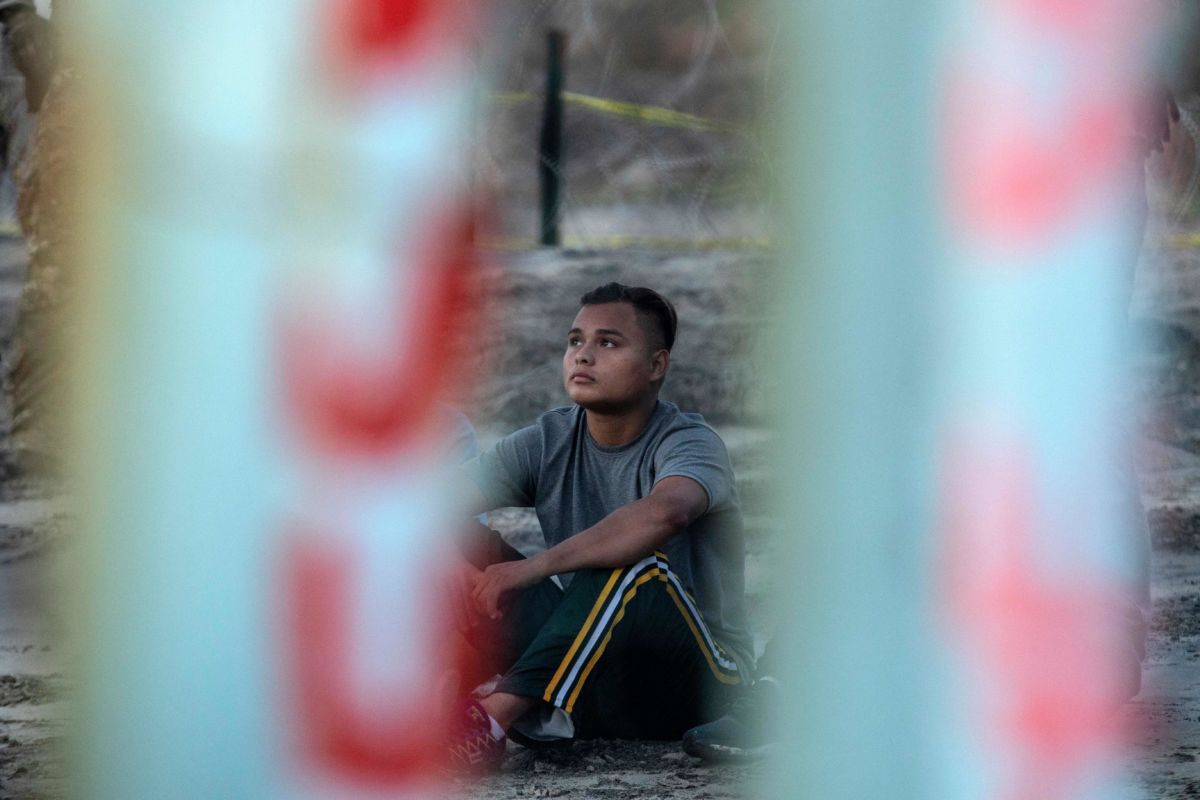Many in the US are reflecting on the country’s collective values after images of children running to escape clouds of tear gas fired by US border agents came to light. What remains unseen, however, is the stealth effort by the Trump administration to pressure the incoming Mexican administration to help carry out US border and immigration policies that grow more draconian by the day.
The ongoing secrecy behind the agents’ use of force has since hindered hopes for accountability, and has shifted the public’s focus toward Mexico’s role in executing President Trump’s plans to fortify the border and overhaul the US asylum process.
There are conflicting reports about the supposed deal between the two countries to force asylum-seekers to wait in Mexico while their cases wind through US immigration courts. The proposal has drawn condemnation from human rights observers, who say the plan would violate individuals’ rights to seek asylum. Mexico’s President-elect Andrés Manuel López Obrador says there is no such agreement, but the tradition of covert negotiations between the two countries threatens to block the public from knowing the truth.
The Trump administration forced Mexico’s outgoing government to keep files between the two countries under tight seal, including officials’ communications on family separation policy. In response to information requests filed by Open the Government, Mexico’s foreign secretariat told the organization that their diplomats voiced opposition to the family separation policy, but could not release the communications to prove it.
The newly obtained records indicate that earlier this year Mexico’s Foreign Minister Luis Videgaray communicated directly with US Secretary of State Mike Pompeo and Department of Homeland Security Secretary Kirstjen Nielsen, expressing Mexico’s condemnation and rejection of the policy of separating migrant families at the border. Mexico’s embassy also called in June 2018 for the US to stop practices that violate human rights of migrants and take actions to “correct the grave effects of the implementation of the ‘zero tolerance’ policy.”
The US State Department, however, is trampling on the public’s right to know what was said behind closed doors. Despite the enormous public demand for information about these policies, according to the documents, US officials told Mexico to shield records from the public for at least three years, and Mexico complied.
If the US can force Mexico’s silence even when families are torn apart, there is little hope for accountability for other controversial decisions involving Mexico’s cooperation on immigration enforcement. Disregarding objections from the US Congress, the Trump administration appears determined to move forward with plans to transfer $20 million for Mexico’s immigration authorities to detain and deport migrants before they reach the US border. Still more US tax dollars may be spent funding efforts by the Mexican police to stop families from reaching ports of entry to request asylum.
All of this behind-the-scenes maneuvering leaves lawmakers in both countries in the dark as to what comes next from the police and military stationed at the border. Fears continue to grow over how the US military will interpret their new authority to use deadly force, provided by the order signed by White House Chief of Staff John Kelly. As Mexico closes down migrant shelters at the border, there is serious concern that security forces on either side of the border could react with more violence against desperate asylum seekers.
Secrecy and chaos flourish under the Trump administration’s approach to the border. Backdoor agreements between US and Mexico officials undermine public confidence in both governments. Without transparency, there is little hope for restoring legal safeguards or human rights protections. The consequences are detrimental for asylum-seekers, as well as for citizens in both countries who want a voice in the decisions made by elected officials.
To restore accountability, the next US Congress and Mexico’s new administration will need to break the wall of secrecy to roll back the tide of abuse and government overreach.
Join us in defending the truth before it’s too late
The future of independent journalism is uncertain, and the consequences of losing it are too grave to ignore. To ensure Truthout remains safe, strong, and free, we need to raise $43,000 in the next 6 days. Every dollar raised goes directly toward the costs of producing news you can trust.
Please give what you can — because by supporting us with a tax-deductible donation, you’re not just preserving a source of news, you’re helping to safeguard what’s left of our democracy.
